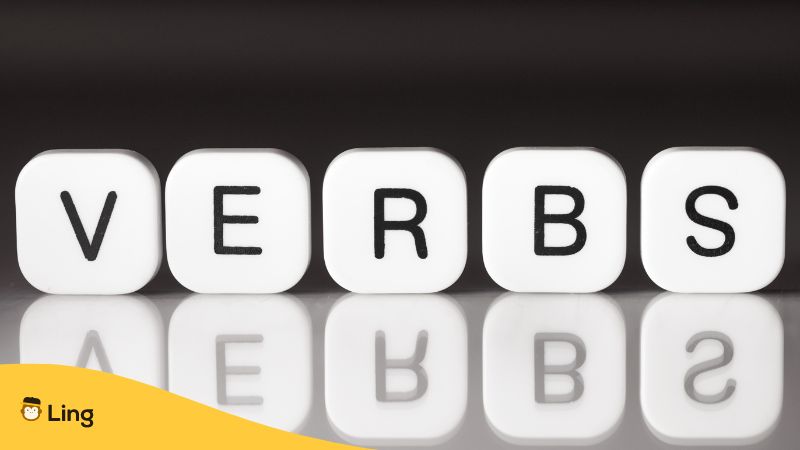Chinese is a captivating and intricate language that has been spoken for thousands of years. One of the most distinctive and important aspects of Chinese is its extensive collection of verbs. Verbs are an essential part of language, and in Chinese, they are particularly vital as they are used to express tense, aspect, and mood.
Understanding Chinese verbs, which are “动词 動詞” (dòngcí), and their usage, is crucial for effective communication in the language. In this article, we will delve into the world of Chinese verbs, examining their structure, usage, and common examples. This will help you gain a deeper understanding of this fundamental aspect of the language.
Common Chinese Verbs

The beauty of the Chinese language lies in its richness of verbs. These verbs play a critical role in constructing meaningful sentences and expressing ideas. Chinese verbs are typically one or two characters long and can be used alone or in combination with other words. They do not change to reflect tense, person, or number. Instead, other words are used to indicate these features.
Regarding sentence structure, Chinese verbs are typically placed before the object. This is different from English, where the verb usually follows the subject. For example, in the sentence “I am eating an apple,” the verb “eating” would come before the object “apple.” This structure allows for more fluid and flexible expression in Chinese.
Chinese verbs can also be paired with other words to indicate the type of action or to modify the verb. For example, the verb “to eat” can be modified by the word “fast” to indicate that someone is eating quickly. Similarly, the verb “to run” can be paired with the word “fast” to show speed. These modifiers provide additional information about the action and add depth to the sentence.
One important thing to note is that verbs in Chinese Mandarin can have multiple meanings depending on the context in which they are used. For example, the verb “看” (kàn) can mean “to read,” “to see,” or “to watch.” The correct meaning is determined by the context of the sentence.
Chinese verbs are also critical in Chinese idioms, or chéngyǔ. These are four-character phrases that convey a message or lesson. Many chéngyǔ include verbs and are often used in everyday conversation and writing. In this guide, you will learn almost all Chinese verbs that are mostly known as common verbs.
Essential Chinese Verbs For Cooking
Here are some Chinese words that you might need while cooking Chinese food.
| English Words | Chinese Simplified | Chinese Traditional | Romanization |
| Add | 添加 | 添加 | Tiānjiā |
| Bake | 烤 | 烤 | Kǎo |
| Boil | 熬 | 熬 | Áo |
| Break | 休息 | 休息 | Xiūxí |
| Chop | 劈 | 劈 | Pī |
| Cut | 切 | 切 | Qiè |
| Fry | 炒 | 炒 | Chǎo |
| Grate | 炉排 | 爐排 | Lú Pái |
| Layer | 层 | 層 | Céng |
| Melt | 熔化 | 熔化 | Rónghuà |
| Mix | 混合 | 混合 | Hùnhé |
| Peel | 剥 | 剝 | Bō |
| Roast | 烤 | 烤 | Kǎo |
| Roll Out | 推出 | 推出 | Tuīchū |
| Sauté | 炒 | 炒 | Chǎo |
| Slice | 片 | 片 | Piàn |
| Spread | 传播 | 傳播 | Chuánbò |
| Taste | 品尝 | 品嚐 | Pǐncháng |
| Weigh | 称重 | 稱重 | Chēng Zhòng |
| Whip | 鞭子 | 鞭子 | Biānzi |
Action Based Chinese Verbs
These are some action based words in Chinese that you should learn about.
| English Words | Chinese Simplified | Chinese Traditional | Romanization |
| Cry | 哭 | 哭 | Kū |
| Cut | 切 | 切 | Qiè |
| Dance | 舞蹈 | 舞蹈 | Wǔdǎo |
| Fight | 斗争 | 鬥爭 | Dòuzhēng |
| Fly | 飞 | 飛 | Fēi |
| Laugh | 笑 | 笑 | Xiào |
| Listen | 听 | 聽 | Tīng |
| Play | 玩 | 玩 | Wán |
| Read | 读 | 讀 | Dú |
| Ride | 骑 | 騎 | Qí |
| Sing | 唱歌 | 唱歌 | Chànggē |
| Sit Down | 坐下 | 坐下 | Zuò Xià |
| Sleep | 睡觉 | 睡覺 | Shuìjiào |
| Stand Up | 起来 | 起來 | Qǐlái |
| Think | 思考 | 思考 | Sīkǎo |
| Throw Away | 丢弃 | 丟棄 | Diūqì |
| Turn Off | 关 | 關 | Guān |
| Turn On | 打开 | 打開 | Dǎkāi |
| Watch TV | 看电视 | 看電視 | Kàn Diànshì |
| Win | 赢 | 贏 | Yíng |
Body Movement-Related Verbs
Let’s now explore the body movement-related verbs. From simple actions like standing and walking, to more complex movements like jumping and dancing, our table covers all the essential verbs you need to express yourself physically. Learning these verbs will not only make talking about body movements easier but also help you improve your language skills and communicate more effectively in Mandarin Chinese.
| English Words | Chinese Simplified | Chinese Traditional | Romanization |
| Bend | 弯曲 | 彎曲 | Wānqū |
| Carry | 携带 | 攜帶 | Xiédài |
| Dive | 潜水 | 潛水 | Qiánshuǐ |
| Drag | 拖 | 拖 | Tuō |
| Hit | 打 | 打 | Dǎ |
| Hold | 抓住 | 抓住 | Zhuā Zhù |
| Jump | 跳 | 跳 | Tiào |
| Kneel | 下跪 | 下跪 | Xià Guì |
| Lean | 倾斜 | 傾斜 | Qīngxié |
| Leap | 飞跃 | 飛躍 | Fēiyuè |
| Lift | 举起 | 舉起 | Jǔ Qǐ |
| Pick Up | 捡起 | 撿起 | Jiǎn Qǐ |
| Pull | 拉 | 拉 | Lā |
| Punch | 冲床 | 沖床 | Chōngchuáng |
| Push | 推 | 推 | Tuī |
| Run | 跑步 | 跑步 | Pǎobù |
| Sit | 坐 | 坐 | Zuò |
| Squat | 蹲 | 蹲 | Dūn |
| Throw | 扔 | 扔 | Rēng |
| Tiptoe | 脚尖 | 腳尖 | Jiǎojiān |
| Walk | 走 | 走 | Zǒu |
Classroom Related Verbs
Studying Chinese can be a challenging yet rewarding experience, and mastering the language requires more than just memorizing vocabulary words. To excel in your academic journey, it’s important to learn the Chinese verbs commonly used in the classroom.
Fortunately, this comprehensive table provides a detailed list of essential verbs related to classroom activities, making it easier to navigate your way through discussions, assignments, and exams. With this valuable resource, you’ll be able to communicate confidently with your classmates and teachers and take your learning to the next level.
| English Words | Chinese Simplified | Chinese Traditional | Romanization |
| Calculate | 计算 | 計算 | Jìsuàn |
| Close | 关闭 | 關閉 | Guānbì |
| Count | 数数 | 數數 | Shù Shù |
| Cut | 切 | 切 | Qiè |
| Draw | 画 | 畫 | Huà |
| Experiment | 实验 | 實驗 | Shíyàn |
| Give | 给 | 給 | Gěi |
| Listen | 听 | 聽 | Tīng |
| Observe | 观察 | 觀察 | Guānchá |
| Open | 打开 | 打開 | Dǎkāi |
| Paint | 画 | 畫 | Huà |
| Play | 玩 | 玩 | Wán |
| Read | 读 | 讀 | Dú |
| Say | 说 | 說 | Shuō |
| Show | 展示 | 展示 | Zhǎnshì |
| Sing | 唱歌 | 唱歌 | Chànggē |
| Spell | 拼写 | 拼寫 | Pīnxiě |
| Study | 学习 | 學習 | Xuéxí |
| Teach | 教 | 教 | Jiào |
| Think | 思考 | 思考 | Sīkǎo |
Daily Chore Verbs
Are you tired of struggling with daily chores and finding the right Chinese words to describe them? Look no further than this convenient table. From cooking to cleaning to laundry, this table has got you covered with all the essential vocabulary you need to navigate your daily routine with ease. By mastering these verbs, you’ll be able to express yourself confidently in Chinese and make your daily life a breeze.
| English Words | Chinese Simplified | Chinese Traditional | Romanization |
| Change (The Sheets) | 改变(床单) | 改變(床單) | Gǎibiàn (Chuángdān) |
| Drill | 钻头 | 鑽頭 | Zuàntóu |
| Dry | 干燥 | 乾燥 | Gānzào |
| Fold | 折叠 | 折疊 | Zhédié |
| Hang | 悬挂 | 懸掛 | Xuánguà |
| Iron | 铁 | 鐵 | Tiě |
| Make (The Bed) | 铺(床) | 鋪(床) | Pù (Chuáng) |
| Nail | 指甲 | 指甲 | Zhǐjiǎ |
| Repair | 维修 | 維修 | Wéixiū |
| Scrub | 擦洗 | 擦洗 | Cāxǐ |
| Take Out (The Rubbish/ Garbage) | 拿出(垃圾/垃圾) | 拿出(垃圾/垃圾) | Ná Chū (Lèsè/Lèsè) |
| Tighten | 紧缩 | 緊縮 | Jǐnsuō |
| Vacuum | 真空 | 真空 | Zhēnkōng |
| Wipe Off (The Table) | 擦掉(桌子) | 擦掉(桌子) | Cā Diào (Zhuōzi) |
In A Nutshell

Unlock the mystery of the Chinese language with Ling and explore the unique structure of Chinese verbs, so distinct from English. With Ling, you can also interact with non-native English speakers and learn European languages too. Let’s make the journey of learning Chinese fun and effortless, to become a pro in no time!
If you want to know more, check out our blog posts about summer vacations in China and Chinese food. Download Ling from Google Play Store or App Store to start learning Chinese.


































































